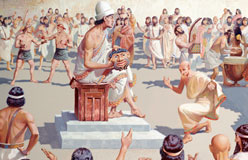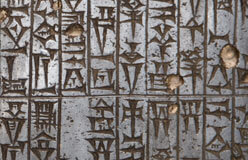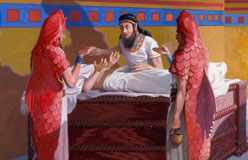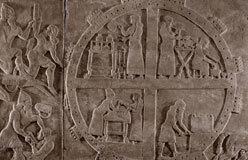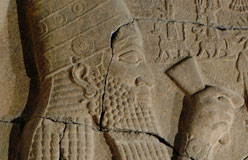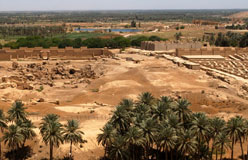When Babylon fell to the Persian king Cyrus in 539 B.C., Mesopotamia’s glory days came to an end.
As the centuries passed, people remembered less and less of Mesopotamia’s achievements. Once-glorious cities were buried in the sands, and cuneiform was replaced by other types of writing. Ancient Greek history writing and the Old Testament kept alive an awareness that Assyria and Babylon had existed. But Sumer had died out long before these later civilizations. It was completely forgotten.
The Persian rulers were followed by the Greeks, the Arabs, and the Turks. When Britain defeated Turkey in World War I, the land became part of the British Empire and was given the new name of Iraq. The Arab natives of Iraq fought for independence, which they won in 1932. More than a century before that, however, scholars and adventurers had begun to rediscover Mesopotamia.
